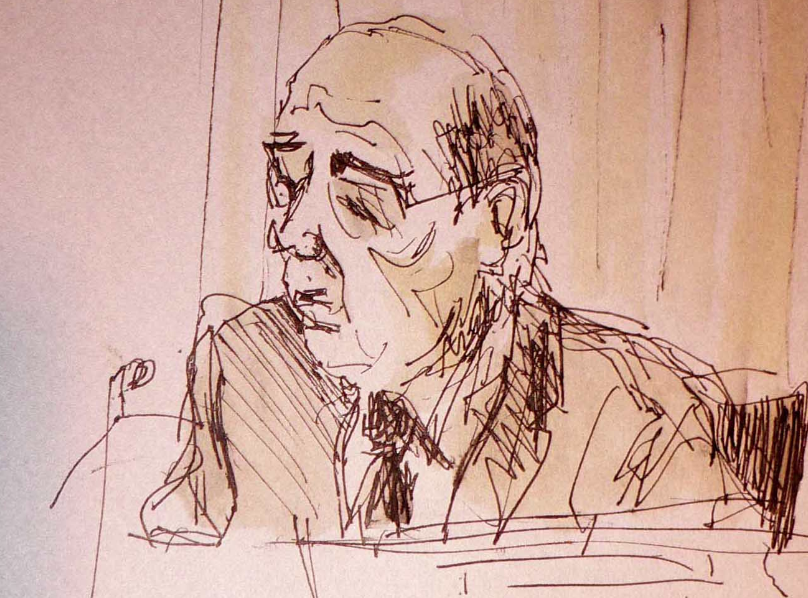‘A disgraceful mishmash of dissimulation, playground logic and shifty language’
The government has dropped plans to continue with the second stage of the Leveson inquiry. Leveson 2 was supposed to be an investigation into poor conduct and incompetent governance of individual newspaper groups, how journalists acquired information and how the police investigated these and if police officers had received bribes.
Its predecessor, led by judge Sir Brian Leveson was sparked by the 2011 phone-hacking scandal and investigated the culture, ethics and practices of the press. It was called for by then Prime Minister David Cameron in 2011 and its findings caused the closure of the News of the World.
- You can read an interview with Daniel Morgan’s brother Alastair and Mehdi Shakarchi on the need for Leveson 2 (here). Daniel Morgan was a private eye who was found murdered in a south-east London car park with an axe embedded in his head in 1987. His business partner was supplying the News of the World with illegally gained confidential information. His family has long claimed that the murder was an execution with the aim of silencing Morgan who, they say, was about to expose high level corruption in the Met.
Meanwhile the Guardian yesterday published a letter from more than 20 academics lambasting an editorial (here) backing the decision. According to the letter, it represented ‘a fourfold betrayal’ by the newspaper not least betraying its own journalists, including Nick Davies who exposed the phone hacking scandal, ‘the blameless and often vulnerable victims’ promised a public inquiry, and the public ‘who, as Brian Leveson has pointed out, are entitled to know the true scale of what went wrong, how newspaper managements allowed it to happen and what lessons can be learned’. Finally, they argued that by endorsing the cancellation of Leveson 2 the newspaper placed itself on the side ‘not only of this Conservative government but also of its close allies, the newspapers that perpetrated the crimes and the wrongdoing’. That, the letter argued, was its fourth betrayal.
The culture secretary Matt Hancock jettisoned the proposed second stage of Levison, saying that the ‘world had changed’ since the publication in November 2012 of the initial part of the Leveson report and that the press had improved. Cries of ‘shame’ were uttered in the Commons when he announced the decision.
Sir Brian Leveson responded to the news last Tuesday by publishing a letter to the culture secretary Matt Hancock and home secretary Amber Rudd, accusing the government of betraying its promises to past victims of phone-hacking.
Sir Leveson stated that the ‘extent of wrongdoing [at News UK] has been far greater than the [first] inquiry was informed” and that there was still a “legitimate expectation’ of an inquiry to go ahead.
Hancock pointed to the drop in newspaper circulation of 30% since 2012 and called for a ‘robust and independently regulated [press], that reports without fear or favour’. The MP also announced that the government would not put into effect a law that would make newspapers pay all legal costs of libel cases, whether they won or lost. Conservative peers had voted in favour of Section 40 of the Crime and Courts Act through an amendment to the Data Protection Bill.
Shadow Culture Secretary Tom Watson claimed that the press had ‘helped write’ the minister’s statement and said Hancock had was failing to ‘stand up to the tabloid-style newspapers who are propping up this government’. He further stated that this was a ‘bitter blow to the victims of press intrusion’. Watson said that Hancock would likely be receiving ‘plaudits’ from the newspapers and ‘prosper politically’ from the decision.
Writing for Byline, Brian Cathcart, founder of the Hacked Off campaign, write a critique of what ‘the most intellectually dishonest and also the sloppiest Guardian editorial in decades’. By endorsing the cancellation of Leveson 2, the Guardian had ‘conclusively switched sides’ in the debate about press abuses. ‘The paper’s editorial justifying this switch is a disgraceful mishmash of dissimulation, ignorance, playground logic and shifty language,’ he wrote.






